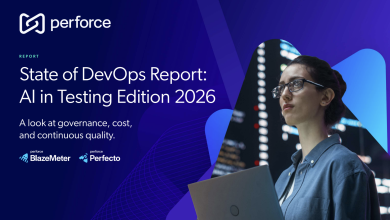
For a company to reach the pinnacle of success, I believe its corporate environment must be based on a culture of innovation and the empowerment of team members to drive transformation. This ethos has been strongly influenced by previous companies I’ve worked for, who have operated in this way, including South African Permanent Building Society, Betfair, Reliance Mercedes-Benz, Carl Zeiss, and Hotels.com.
What all these companies have in common is a spirit of innovation that’s ingrained in every aspect of their culture, from their approach to technology through to the relationships between staff and board members. It’s for this reason these enterprises are at the forefront of their industries and are able to continue innovating at speed. Witnessing first-hand how these companies adopted an open corporate culture has been fundamental in shaping my career and approach to team management.
My data journey with Cambridge Assessment
Cambridge Assessment provides education tests for over eight million people in 170 countries. As Head of Data Lab, a major part of my role is the transformation of the organisation – taking it from its traditional approach, to one that is forward-thinking and modernised.
When I joined the team in 2017, Cambridge Assessment was at the start of its data journey and had yet to establish a strategy. In devising a plan, it was essential to me that the data-driven strategy was built on an open culture and the team was committed to taking a leap of faith in developing a new technology infrastructure.
As the department grew, it also became increasingly important to provide easily accessible and agile analytics for our research, operations, and analytical teams. Ensuring delivery in a secure and cost-effective manner. Robust data science capabilities are key to supporting the analytics behind our reporting, especially considering the volume and diversity of data being processed. This is critical as it is the understanding of the ‘why’, behind the stat, that results in change. The reporting of statistics alone, only alerts you to the fact that adjustments are necessary, it’s having a holistic view that allows real change to be made.
To keep on top of its data and analytical workload, and the rigorous data security and governance protocols required by the public sector, Cambridge Assessment now uses the Cloudera Data Platform. Having hybrid cloud capabilities working in parallel with our on-premise set-up means authorised personnel can access information as and when they need it, wherever they are.
Harnessing the enterprise cloud data platform for managing self-service data solutions, has ensured IT and business developers are able to work closely together, to move at a pace and scale-up that is in line with customer requirements. The ease in which teams are able to work transparently and collaboratively, has not only eliminated the risk of shadow IT, but also means they are working smarter and focusing on solutions. Our goal of achieving valuable insights that would allow us to make better-informed business decisions is being realised and it is happening in a way that is both time and cost-efficient.
We’re also utilising an enterprise data science platform to accelerate data scientist workflow from exploration to production. Despite being early days, we’re already seeing its benefits in helping us share, validate and re-use models, as well as work with numerous versions of programming software, such as R and Python.
Addressing gender perceptions
Technological upgrades have been imperative in transforming our data practices. However, equally important to our success has been the company and its people embracing this new way of working.
To inspire and adopt a culture of innovation, an organisation must have a diverse and inclusive workforce at its core. And not just in terms of gender and multiculturalism but in thoughts and behaviours. Traditionally, and still today, there are women who have been told to modify and control their ‘forceful’ emotions in the workplace. Passion in women is often perceived as emotional volatility, while conversely in men it is seen as a sign of strength. This is a hypocrisy I have experienced at different stages of my career. I now challenge this sexism and see my passion as part of who I am – identifying it as contributing to my success.
At Cambridge Assessment, we’ve made great progress in reconfiguring the gender balance and the provision of equal opportunities for women, including within our technical teams. As an example, our three revenue-generating exam boards are run by the best candidates for the job, and also happen to be women. Overall, the culture has become more inclusive and supportive of adaptation and modernisation, with career success being based on merit.
Fueling the fire of innovation
Reflecting on the past few years, I’m proud of the advances we’ve made at Cambridge Assessment in overhauling and revolutionising our data practices. I’ve also undergone a journey during this time. Not just as a data leader, but as a woman in a male-dominated field, striving to create an open-to-all corporate culture where women have the opportunity to succeed.
As Cambridge Assessment continues to transform by embracing a culture of innovation – aligning it with those companies of excellence that I admired at the start of my career – I hope it will inspire other data leaders to adopt a similar approach based on equality and inclusivity.




